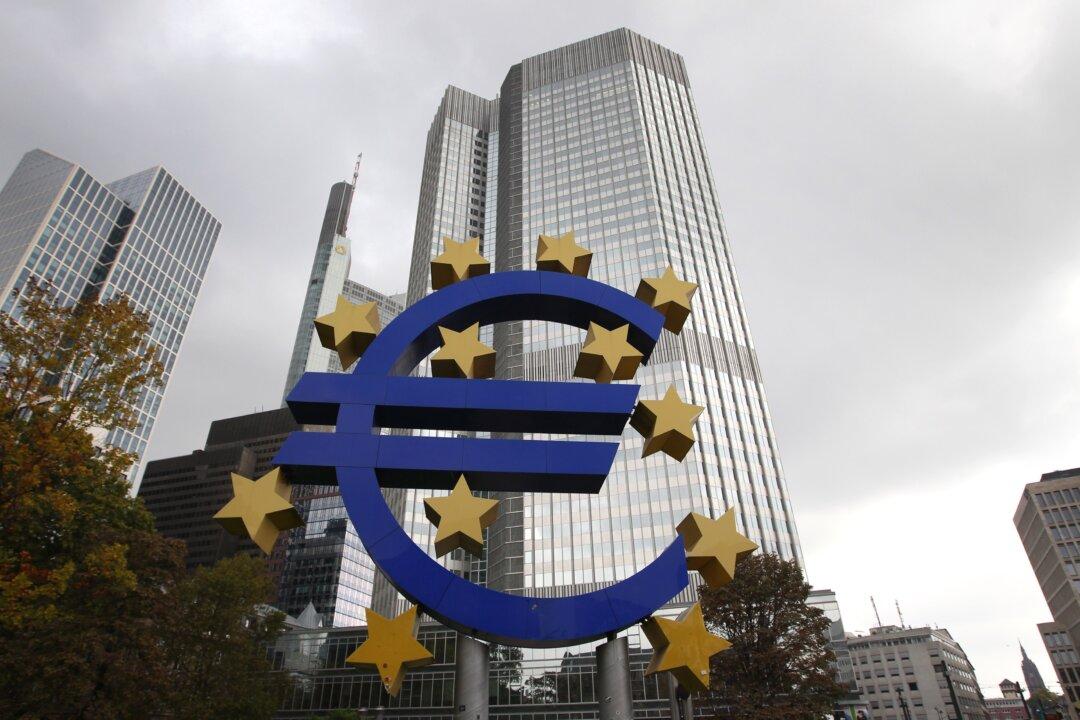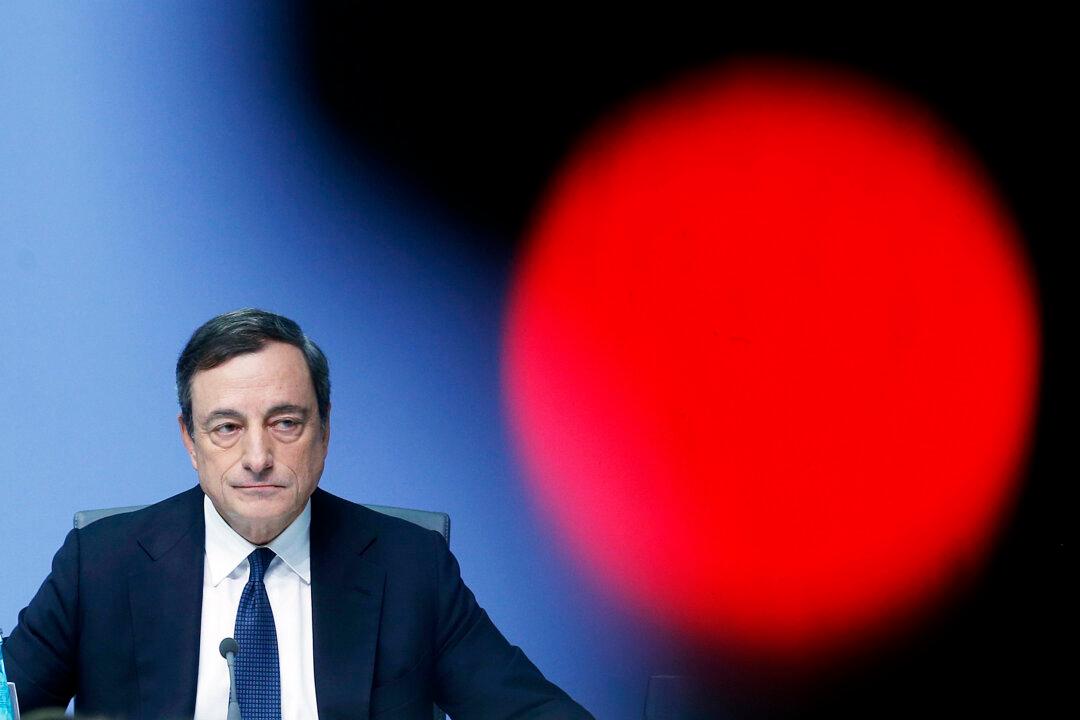FRANKFURT, Germany—Inflation crept higher in the 18 countries that use the euro in October — but the rise to an annual 0.4 percent offered little relief to the European Central Bank as it tries to boost a weak economy.
Inflation was up from 0.3 percent the month before. The figure announced Friday by EU statistics agency Eurostat was in line with market expectations but remains way below the bank’s goal of keeping inflation just below 2 percent.
The chronic weak inflation figures underline the pressure on the ECB to enact more stimulus measures, especially after the Bank of Japan surprised markets with its decision to extend its bond-purchase program as it tries to boost inflation and promote growth. But German opposition may keep the ECB bank from acting unless the eurozone economy starts looking even worse than it does now.
[aolvideo src=“http://pshared.5min.com/Scripts/PlayerSeed.js?sid=1759&width=480&height=300&playList=518490989&responsive=false”]
The eurozone showed no growth at all in the second quarter, and low inflation from weak demand for goods is one sign of that weakness. There are fears the eurozone could even fall into outright deflation, a crippling downward price spiral that could further weigh on growth as consumers delay spending in anticipation of cheaper products down the line.
While the overall inflation figure rose modestly, the core rate, which excludes volatile food and energy prices, fell to 0.7 percent from 0.8 percent. That’s a sign that the economy and underlying price pressures are weak.
Economist Christian Schulz at Berenberg bank in London said the increase in headline inflation “provides only limited reassurance,” although “alarm bells may be ringing a little less loudly” at ECB headquarters in Frankfurt.
“The latest economic rough patch may further delay the long-expected gradual rebound in inflation and will probably trigger more discussions about further easing at the upcoming meetings.” The ECB’s governing council meets Thursday but analysts think the bank is unlikely to take further action then.
ECB President Mario Draghi has said the bank is willing to take further stimulus measures if the outlook worsens. The ECB could start large-scale purchases of financial assets such as government bonds, a step which can pump newly created money into the economy and raise inflation and growth. But doing more is complicated by opposition in Germany, the eurozone’s largest and most influential member.
[aolvideo src=“http://pshared.5min.com/Scripts/PlayerSeed.js?sid=1759&width=480&height=300&playList=518493085&responsive=false”]
The ECB is already conducting a smaller-scale bond purchase program aimed at easing the flow of credit to companies. It is buying bonds made up of bundles of bank loans — a step it hopes will encourage more loans. It has also cut its benchmark interest rate to near zero and is offering ultra-cheap loans to banks tied to their lending to businesses
Other central banks have been far less reluctant than the ECB in buying government bonds. Earlier this week, the U.S. Federal Reserve brought its latest stimulus program to an end. The Fed has been buying government bonds in the markets for over five years as it sought to shore up the U.S. economy following the financial crisis. As well as the Bank of Japan, the Bank of England has also enacted a broad bond-buying program.
By itself, Schulz said, the news of more stimulus from Japan shouldn’t put more pressure on the ECB to act even though it has prompted the euro to rise against the Japanese yen.
“The impact of Japanese inflation on the eurozone is really negligible, so I don’t think the ECB will be overly concerned about this,” he said.
Unemployment figures also offered little relief to the ECB. The unemployment rate of 11.5 percent was unchanged, and the number of jobless people declined, but only by 19,000.
“Today’s data offer a reminder that the eurozone recovery remains weak and vulnerable to a deflationary spell,” said Tom Rogers, senior economic adviser to the EY Eurozone Forecast. “Mario Draghi will be hoping that the depreciation of the euro in the second half of 2014 — together with the boost to consumer income from lower oil prices — helps to reinvigorate price pressures from the New Year.”
From The Associated Press




